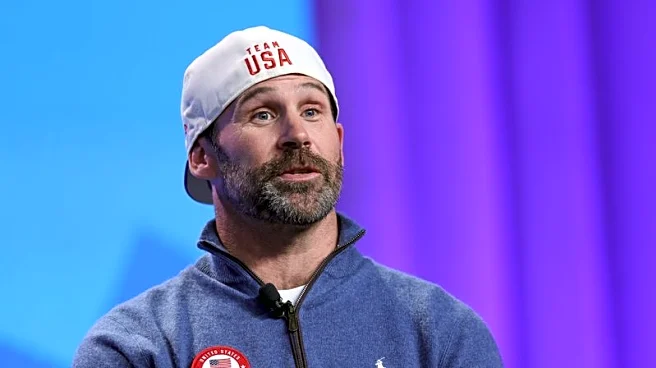What's Happening?
President Trump has introduced a $100,000 fee for H-1B visa applications, a move aimed at protecting American jobs. This fee increase has prompted global talent hubs in Europe, the Middle East, and Asia to capitalize on the opportunity to attract skilled workers. The H-1B visa has been crucial for U.S. companies, especially in the tech sector, to recruit highly skilled personnel from countries like India and China. India's government has criticized the fee hike, citing potential humanitarian consequences. Experts suggest that this policy could impact U.S. innovation negatively, as companies may struggle to afford the increased costs associated with hiring foreign talent.
Why It's Important?
The fee increase for H-1B visas could have significant implications for U.S. industries reliant on foreign talent, particularly in technology and finance. Companies may face higher operational costs, potentially leading to a shift in hiring strategies or a reduction in international recruitment. This policy could also affect the U.S.'s competitive edge in global innovation, as other countries may attract the talent that would have otherwise contributed to American industries. The move may also strain diplomatic relations with countries like India, which are major sources of H-1B visa applicants.
What's Next?
As the new fee takes effect, companies will need to reassess their hiring strategies and budget allocations for international recruitment. There may be increased lobbying efforts from industries affected by the fee hike to seek policy revisions or exemptions. Additionally, other countries may enhance their immigration policies to attract skilled workers, potentially leading to a redistribution of global talent. The U.S. government may face pressure to balance job protection with maintaining its status as a leader in innovation.











